One year of collective action to end statelessness
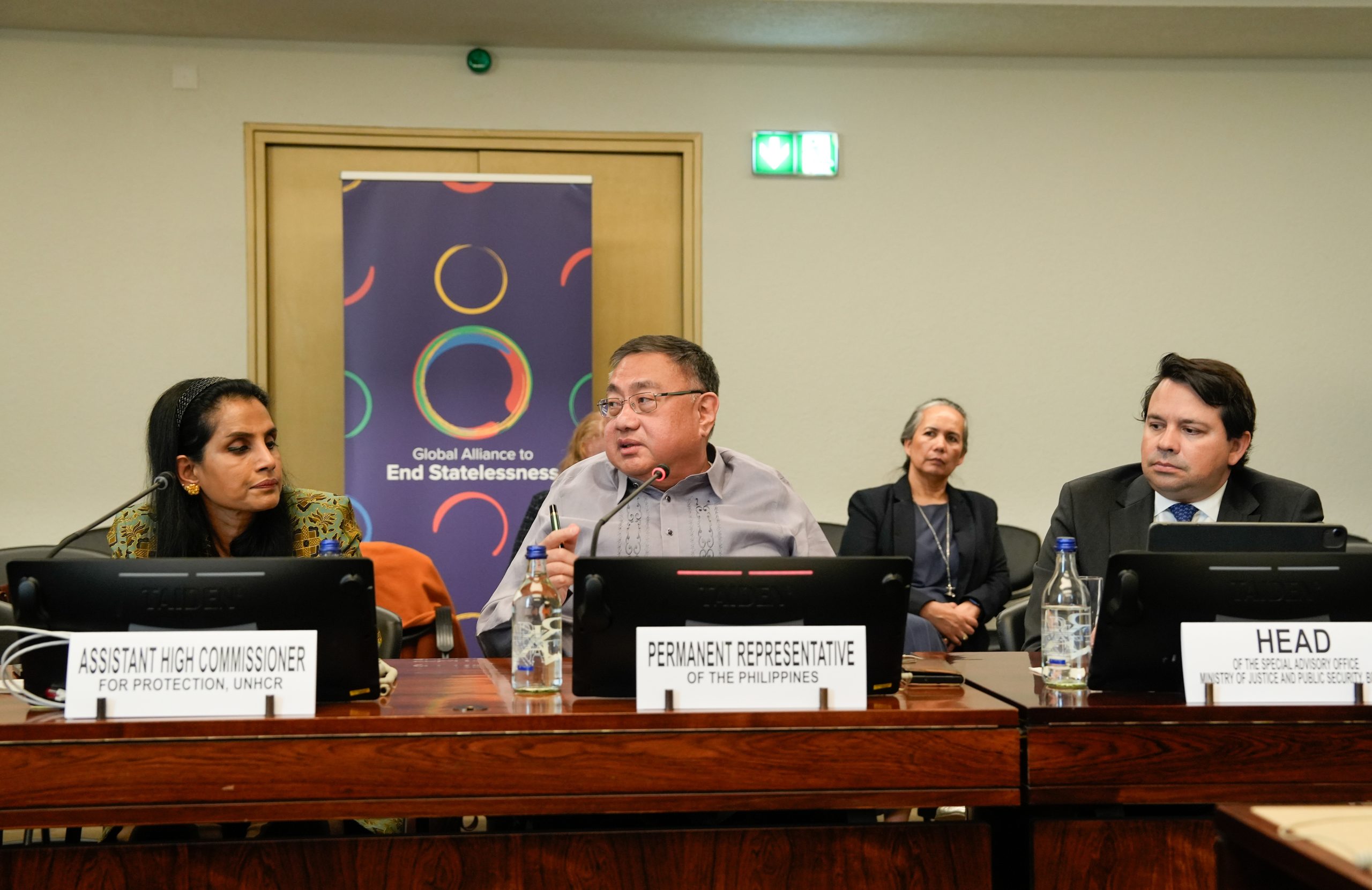
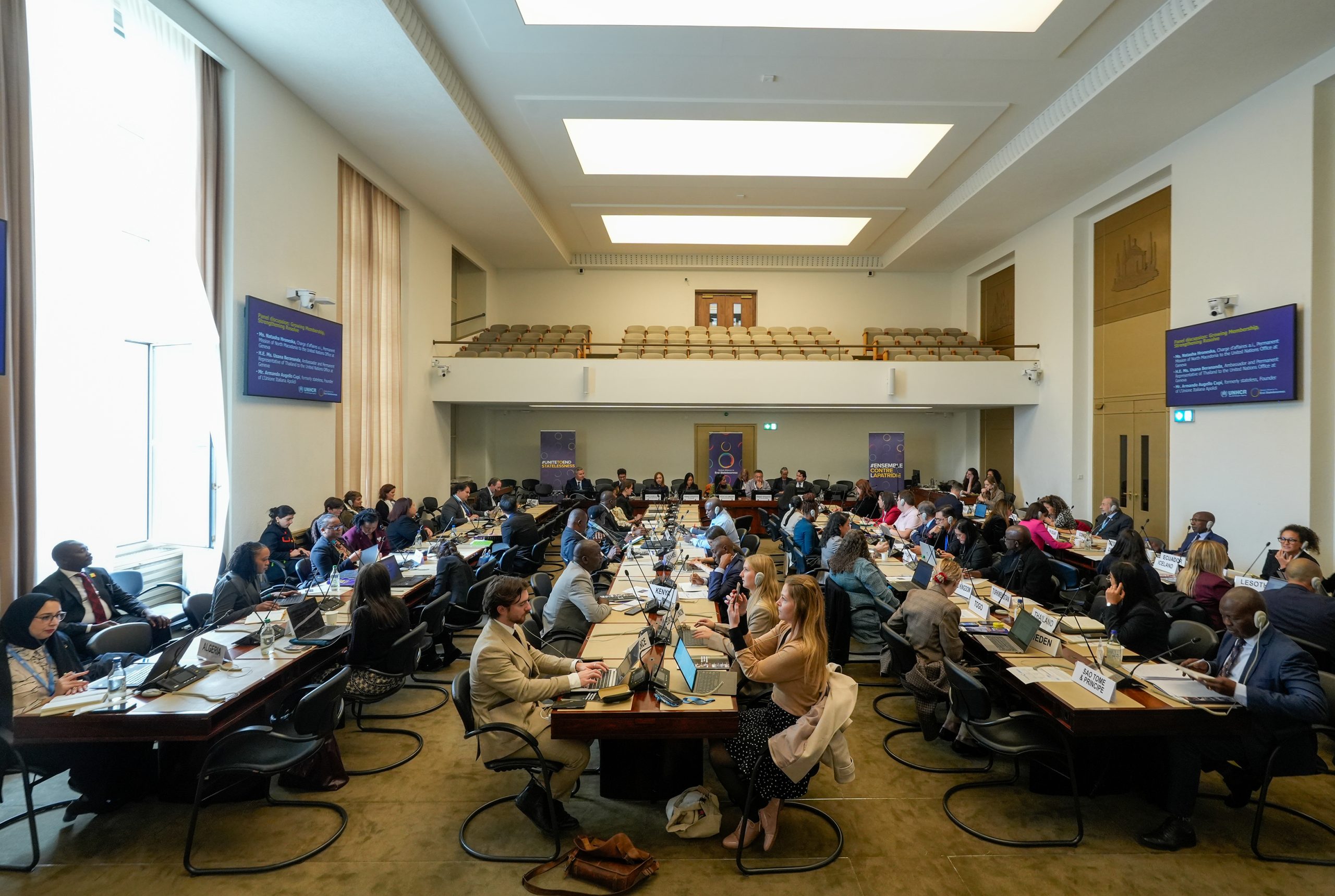
On 8 October 2025, at the Palais des Nations in Geneva, the Global Alliance to End Statelessness marked its first anniversary during a side event of UNHCR’s Executive Committee meeting.
Launched just one year ago, the Alliance has grown into a vibrant multi-stakeholder platform of 150 + members – including 25 States, 11 intergovernmental organizations, and a broad network of civil society and stateless-led organizations – all working together to ensure that no one is left without a nationality.
The event “Growing membership, strengthening resolve: One year of the Global Alliance to End Statelessness,” featured a powerful discussion moderated by Ruvendrini Menikdiwela, UNHCR’s Assistant High Commissioner for Protection, focused on the good practices and the commitment of Alliance members.
Thailand shared how its 2024 Cabinet resolution is opening a pathway to permanent residency and nationality for nearly 500,000 stateless people.
North Macedonia reflected on becoming the first country in the Western Balkans to resolve all known cases of statelessness linked to the dissolution of the former Yugoslavia.
Armando Augello Cupi, founder of Italy’s first stateless-led organization Unione Italiana Apolidi, shared how lived experience drives change.
A special highlight of the event was a ceremony which welcomed Slovenia as the latest country to join the Alliance. Together with the recently joined Albania, Côte d’Ivoire, and Italy, this brings the Alliance to more than 150 committed members.
The Philippines, as the co-chair of the Alliance Advisory Committee, underlined that no State can end statelessness alone and stressed the power of multistakeholder collaboration and action.
Brazil reaffirmed its belief in multilateralism, noting that its engagement and role on the Alliance’s Advisory Committee reflects this commitment.
The event also recognized the eleven States – Angola, Iceland, Togo, Congo, Sao Tome and Principe, South Sudan, Columbia, Malta, North Macedonia, Philippines, and Slovenia – that have recently acceded to the 1954 Convention relating to the Status of Stateless Persons and/or the 1961 Convention on the Reduction of Statelessness. With these new accessions, there are now 99 States party to the 1954 Convention and 82 to the 1961 Convention.
In just one year, the Alliance has shown that ending statelessness is possible when political will, lived experience, and international cooperation come together.
We look forward to another year of partnership, collective action, and concrete progress.
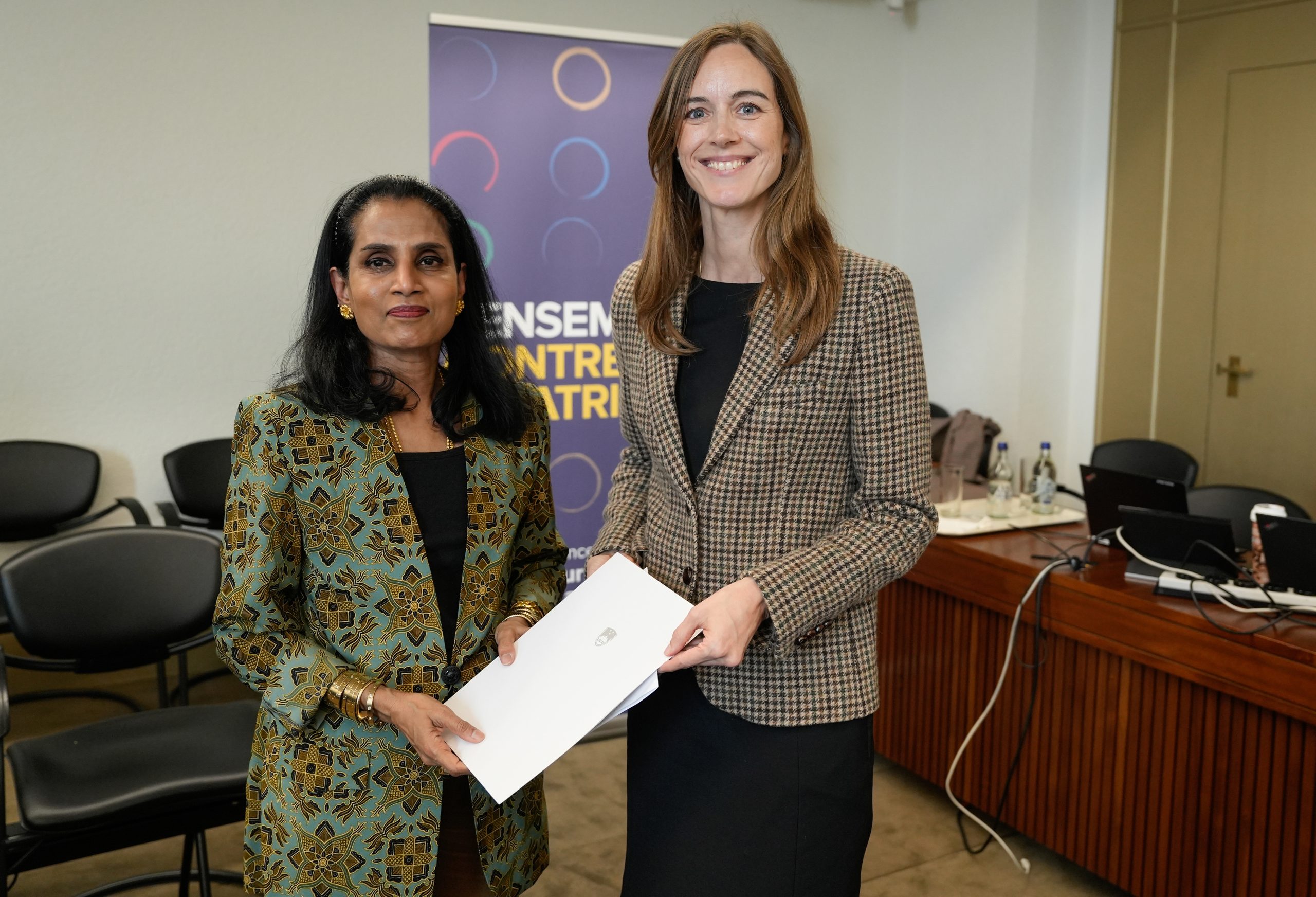
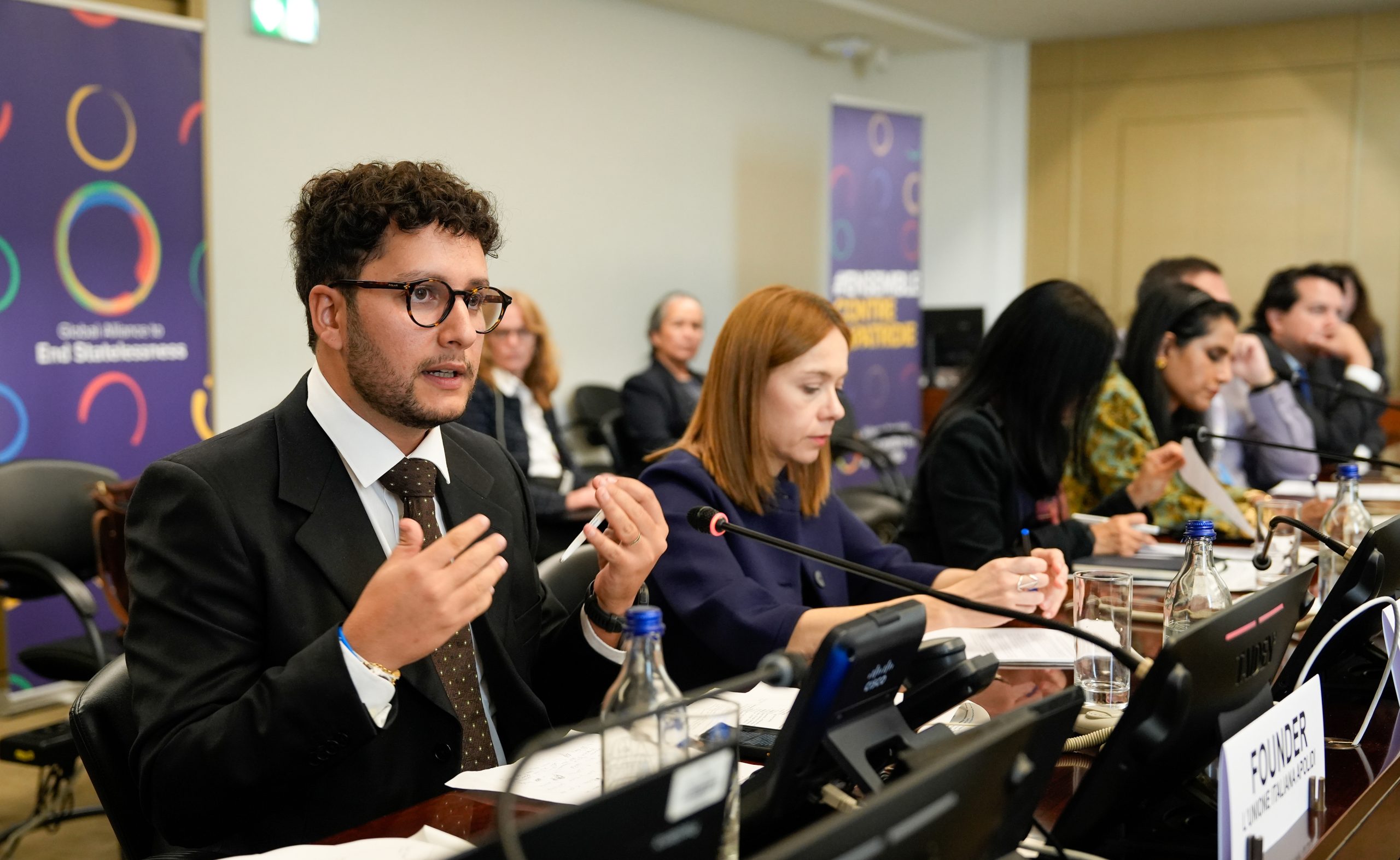
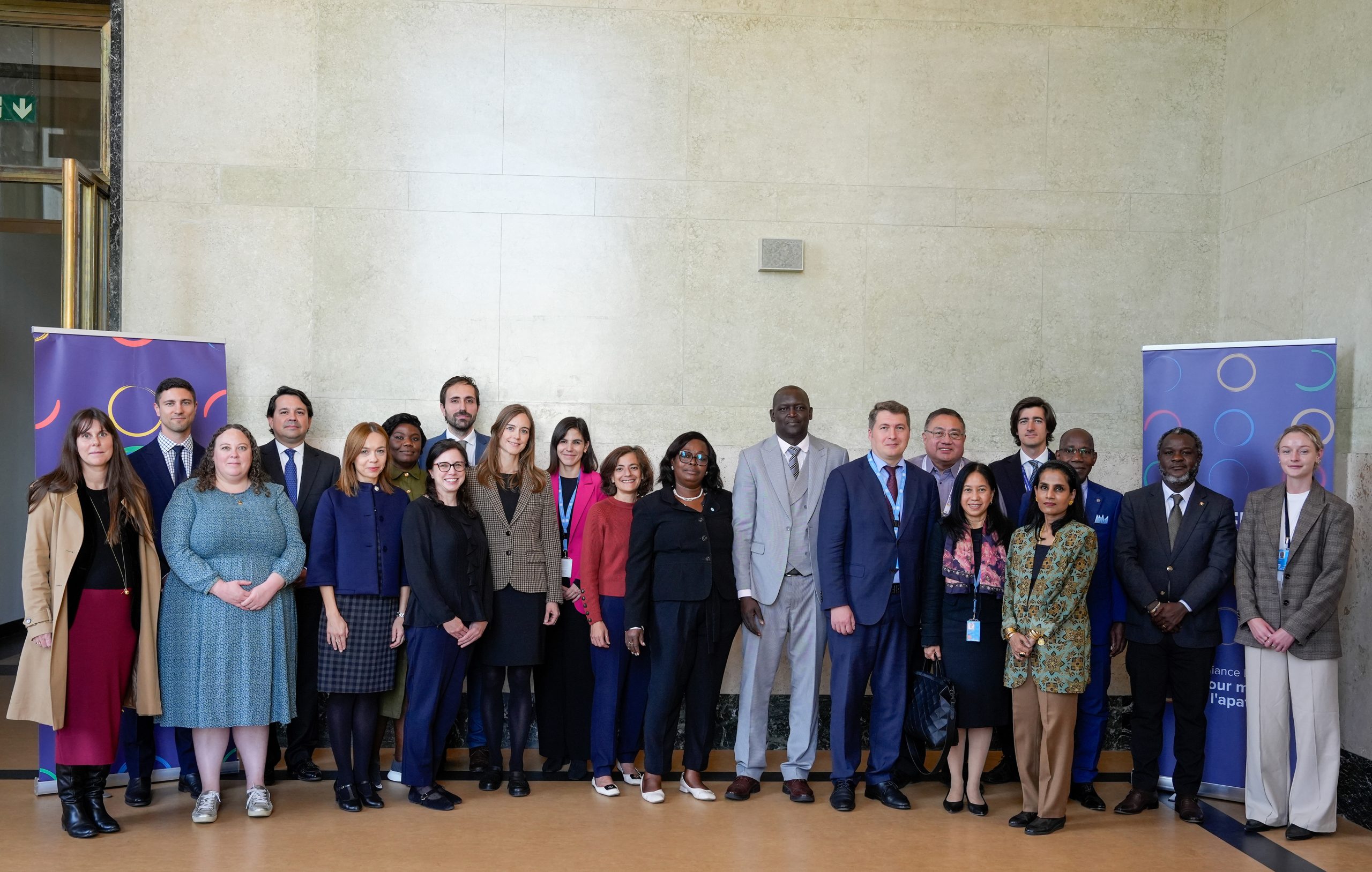
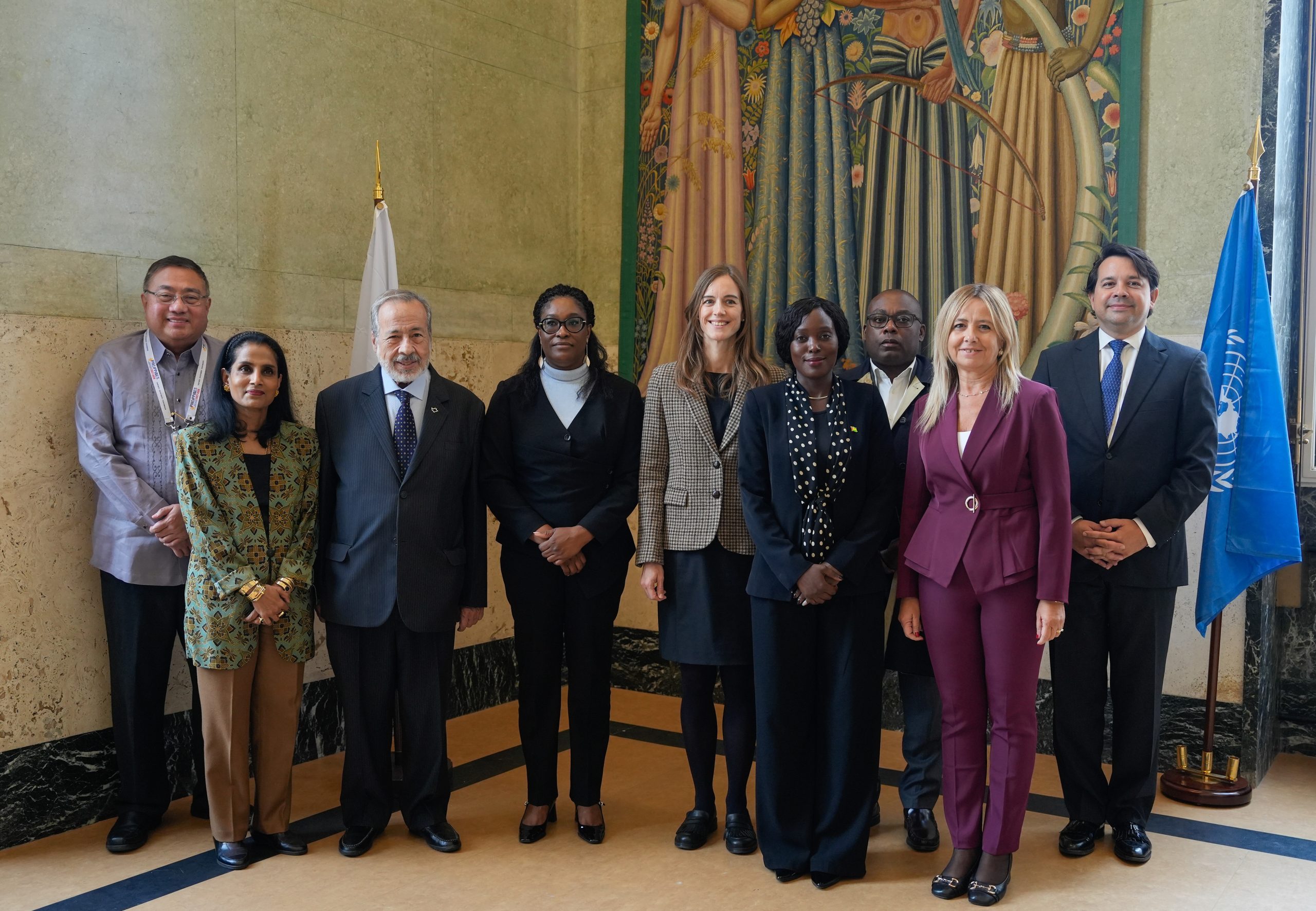
8 January 2026
Realizing the Right to Education for Stateless Persons
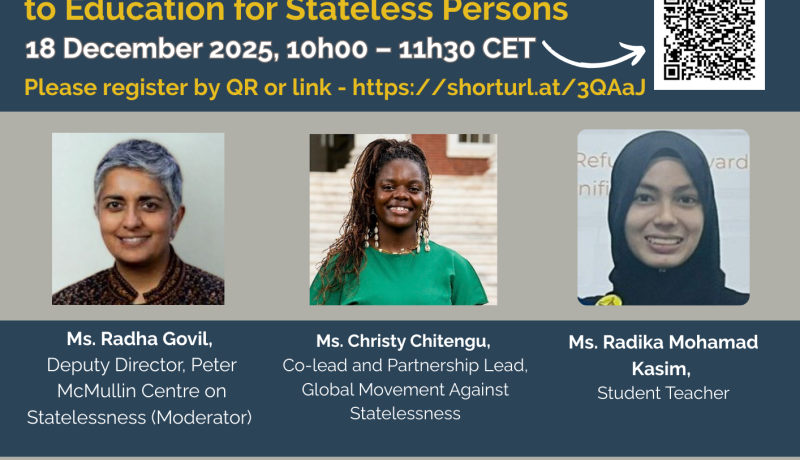
On 18 December 2025, Radha Govil, Deputy Director of the Peter McMullin Centre on Statelessness and Co-lead of the Thematic Working Group (TWG) on Protecting the Rights of Stateless Persons, moderated the fifth and final Global Alliance webinar of the year: “Unlocking Futures: Realizing the Right to Education for Stateless Persons.”
Read more23 December 2025
Statelessness in the Spotlight: Key GRF Progress Review Highlights
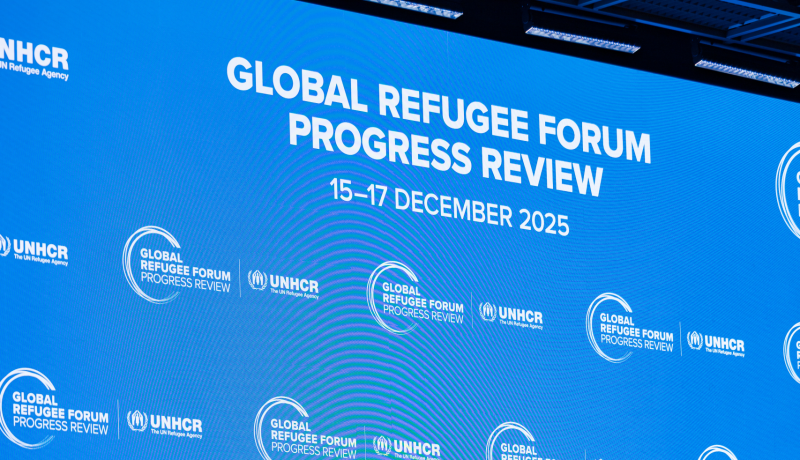
From 15 to 17 December 2025, Geneva hosted the Global Refugee Forum Progress Review – an important global convening which sought to maintain momentum and assess progress against the implementation of the pledges made at the Global Refugee Forum (GRF) towards the advancement of the Global Compact on Refugees (GCR). Governments, regional organizations, UN partners, civil society, and people with lived experience came together to spotlight, inter alia, progress and address gaps in nationality law reform, birth registration, legal identity, and documentation – key to preventing and reducing statelessness. The Global Alliance to End Statelessness featured prominently, showcasing growing membership and collective action. In this article, we explore the highlights and commitments shaping the path toward ending statelessness.
Read more8 December 2025
Equal Nationality Rights for Women – Key to Ending Statelessness and Strengthening Societies
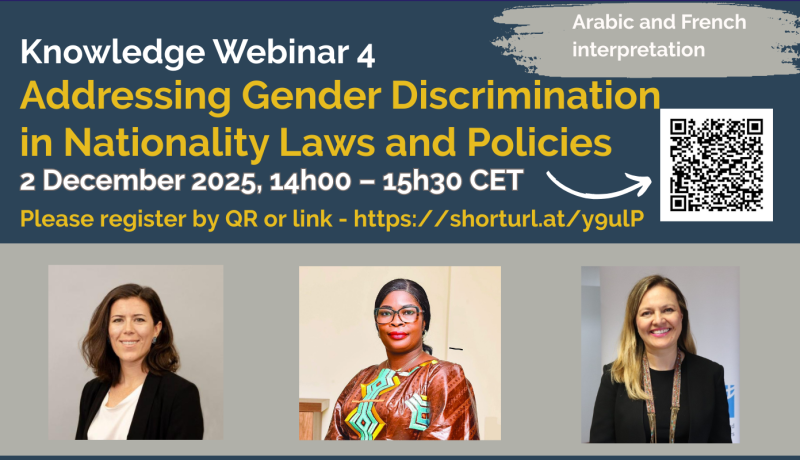
On 2nd December 2025, Catherine Harrington, Manager of the Global Campaign for Equal Nationality Rights, moderated the fourth Global Alliance Webinar on Addressing Gender Discrimination in National Laws and Policies. Opening the event, she reminded participants that over forty-five countries still maintain nationality laws that discriminate based on gender. Twenty-four of these do not permit women to confer nationality on their children on an equal basis with men, making gender-discriminatory laws one of the root causes of statelessness.
Read more